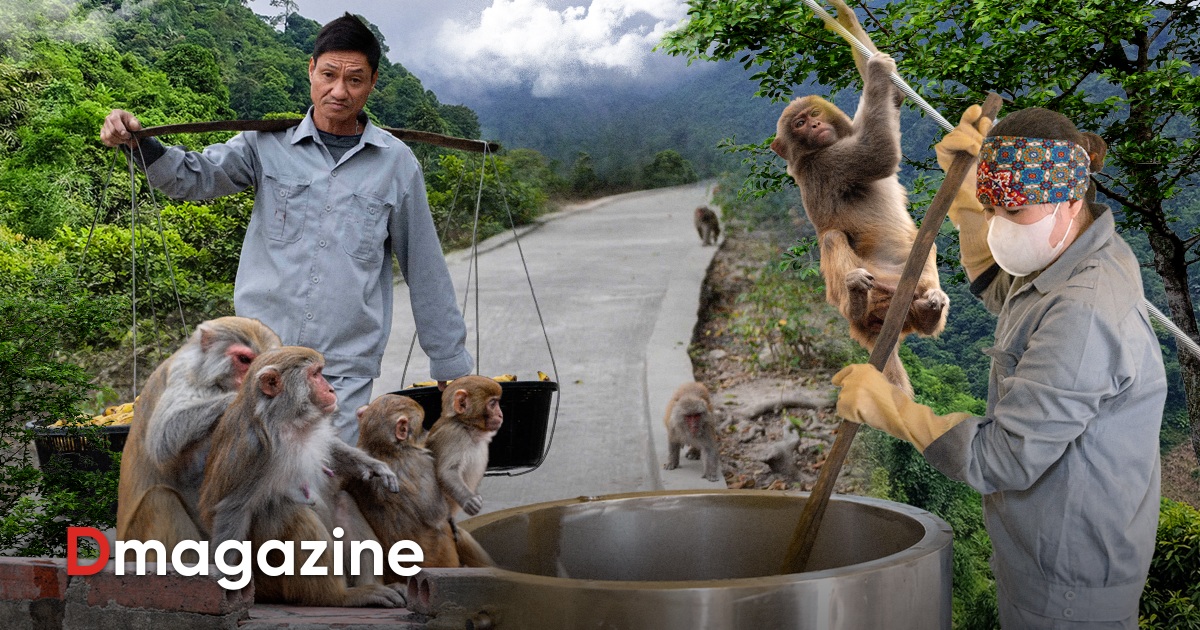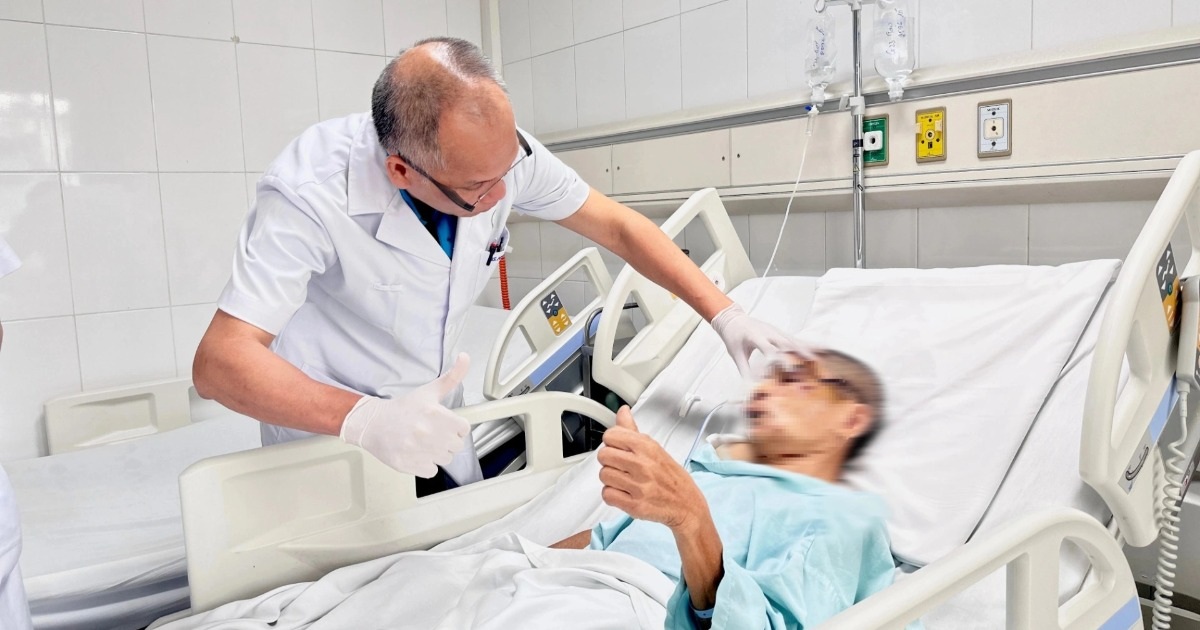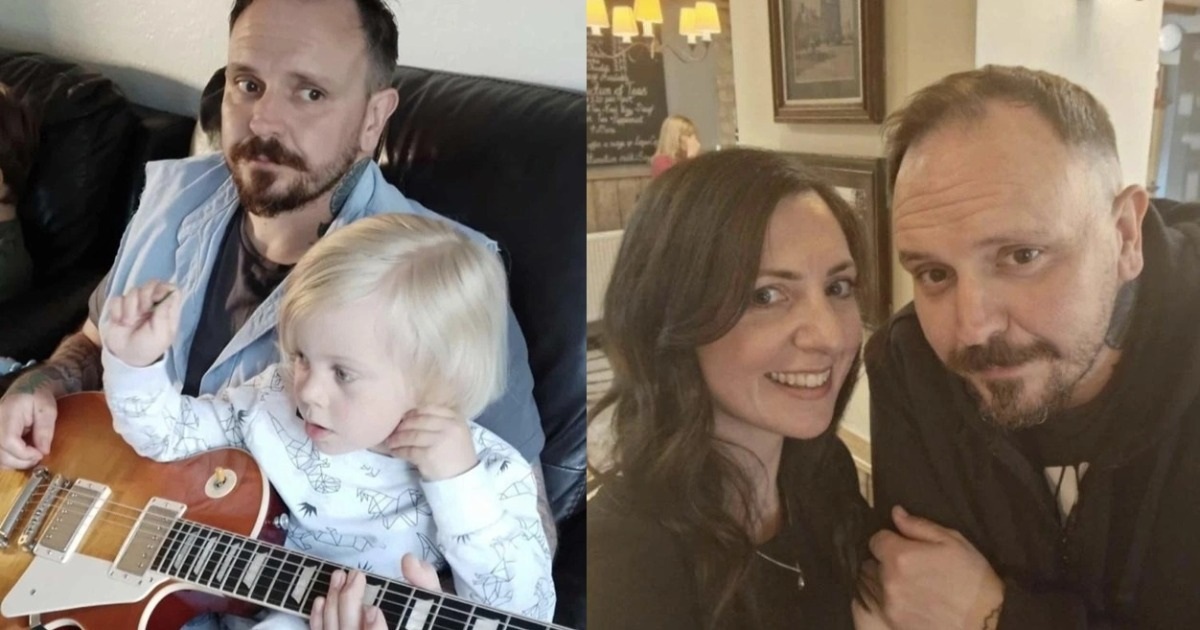When the morning sun begins to peek through the trees, Mr. Phạm Minh Tuấn (53) and his wife Ms. Nguyễn Thị Hà (49) have already prepared breakfast for the monkeys on Island Rêu. This place is not only their workplace but also their home for over three decades.
Special Lives on Island Rêu
Island Rêu, also known as Monkey Island, is located about 3km from Vũng Đục Port and belongs to the Center for Vaccine and Medical Product Research and Production (Ministry of Health). With an area of 22 hectares, it houses hundreds of semi-wild monkeys, playing a crucial role in scientific research and vaccine development.
Mr. Phạm Minh Tuấn and his wife Ms. Nguyễn Thị Hà on Island Rêu.
Mr. Tuấn shared, “My grandfather was one of the first people to come here when the island was still undeveloped. Since then, our family has been connected to this place through three generations.” His entire life and work have been on the island, which he considers a second home.
Not only Mr. Tuấn’s family, but many other couples have chosen the Robinson-like lifestyle on the island. Mr. Nguyễn Huy Phương, the Deputy Head of the Experimental Animal Breeding Station, is part of the third generation continuing the family tradition.
“From a young age, I grew up with the monkey herd and the special stories of my parents’ work. My love for this profession runs deep,” Mr. Phương expressed.
Challenges and Joys
Life on the island is far from easy. In the past, electricity and mobile signals were scarce, requiring persistence and passion for the job. Even now, resupplying food during prolonged rainy seasons remains a significant challenge.
Ms. Lê Thị Hường recalled, “On my first day on the island, I was very afraid of seeing the monkey herd. But now, they feel like close friends.”
Staff caring for the monkey herd on Island Rêu.
Every day, the staff on the island prepare cooked rice, black beans, soybeans, and peanuts to ensure the monkeys are well-fed. They work from early morning until late afternoon, always striving to maintain a clean and safe environment for the monkeys.
Significant Contributions to Scientific Research
The monkey herd on Island Rêu is not just a group of animals; they play a vital role in scientific research. Every year, over 100 healthy monkeys are selected to assist in the production of vaccines against dangerous diseases such as polio, hepatitis A, and avian influenza H5N1. Each monkey can yield nearly one million doses of vaccine.
“I am sad when the monkeys have to leave for experiments, but thanks to them, countless Vietnamese generations are protected from dangerous diseases,” Mr. Phương emotionally said.
Monkeys on Island Rêu being cared for meticulously.
Silent Sacrifices for the Profession
Isolation is the biggest challenge for the staff on the island. Their children are sent to the mainland for education from kindergarten. Many families without grandparents’ support must rely on relatives to care for their children.
Despite these difficulties, the staff find joy in the camaraderie among colleagues and their love for the monkeys. “Our children are all well-behaved and academically successful. Some even won full scholarships to study abroad,” Mr. Phương proudly shared.
Staff on Island Rêu during working hours.
Conclusion
The three generations on Island Rêu have made great sacrifices to contribute to the development of Vietnam’s healthcare industry. Despite facing numerous challenges, they have maintained their love for their profession and a noble sense of responsibility.
Imagine each vaccine dose created from the silent efforts of these “Robinsons.” Let us extend our gratitude to those who silently dedicate themselves to community health!
References:
- Original article from Dan Tri newspaper: Link to article
- Illustrative images from Dan Tri newspaper.



